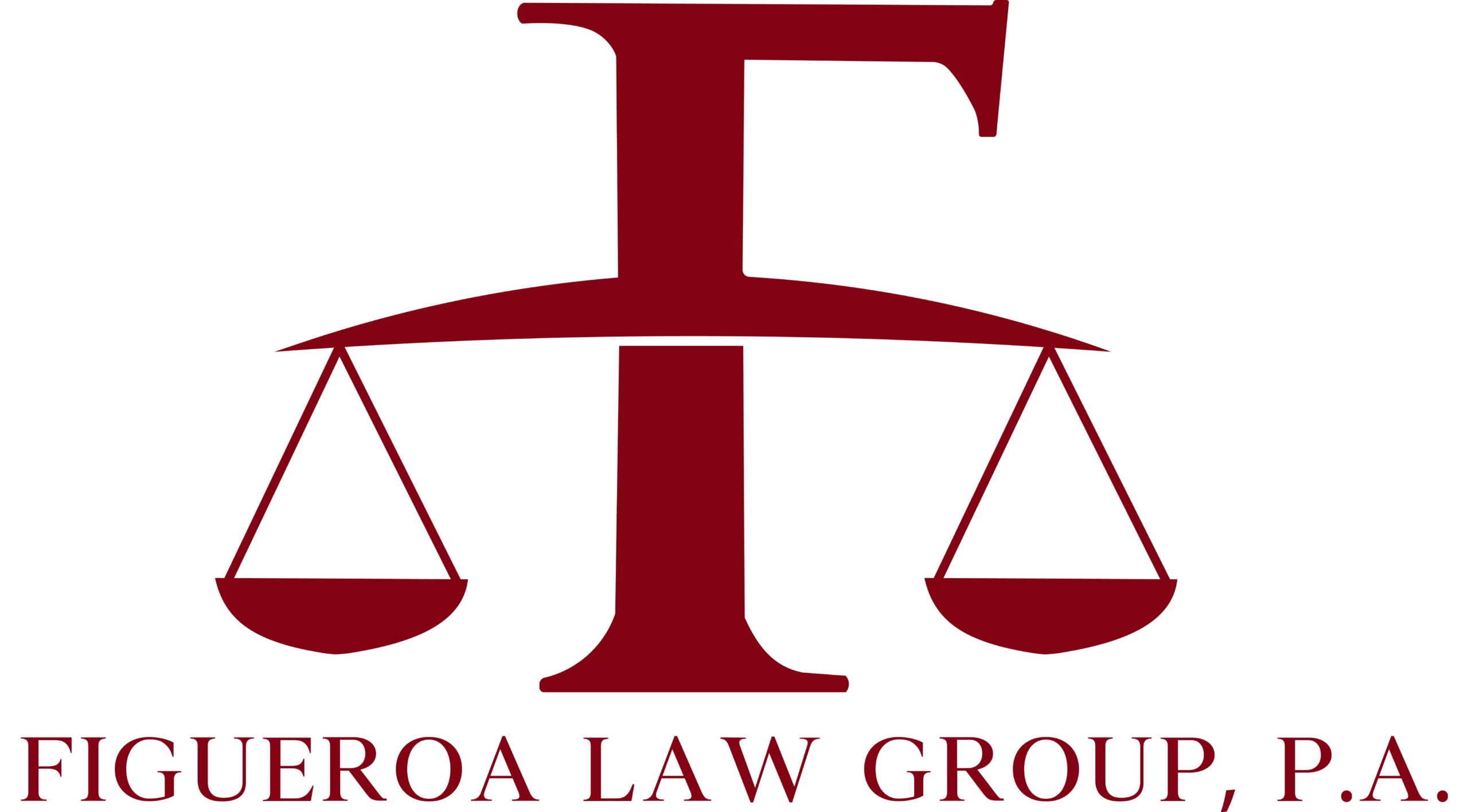Get Legal Assistance For Adoption-Related Issues
Adoption is the happiest family law case of all. Whereas many other issues, like divorce or child custody disputes, are about dividing families, adoptions are about bringing families together. Those who want to start a new era in their family must ensure they are qualified for the process, follow the proper procedures, and handle all concerns correctly.
Figueroa Law Group, P.A. have experience in a wide range of family law areas, and we can guide you through the requirements for adding to your family through adoption.
Adoption can be a fantastic opportunity to give back to the community and provide a child with a loving and stable environment to develop, especially because millions of children need homes every year.
Our Adoption Attorney in Melbourne, FL works to provide help with these issues for a reasonable cost. To talk with a lawyer, get in touch with
our law office now.
Why Do I Need an Adoption Attorney in Melbourne, FL?
If you’re considering adopting a child in Melbourne, FL, it’s important to work with an adoption attorney who can guide you through the legal process and ensure that your rights as an adoptive parent are protected. An experienced adoption attorney can help you navigate the complex legal requirements and paperwork involved in the adoption process, including:
- Understanding the different types of adoptions available in Florida, such as domestic, international, agency, independent, and stepparent adoptions.
- Preparing and filing the necessary legal documents, such as the adoption petition, consent forms, and adoption agreement.
- Representing you in court hearings and mediation sessions, where you may need to present evidence and arguments to support your case.
- Advising you on your legal rights and obligations as an adoptive parent, such as your responsibility to provide financial support and medical care for the child.
Figueroa Law Group, P.A. is a law firm in Melbourne, FL, that provides legal services in the area of adoption law. Our attorneys have extensive experience in representing clients in all types of adoptions, including international adoptions, private adoptions, and stepparent adoptions. We can help you understand the legal requirements for adoption in Florida, and guide you through the process to ensure that your adoption is legal and successful.
Call us right away or get in touch with
our law office through the chat box located at the lower right of our homepage website.
What is Adoption?
The legal process by which a court determines the
obligations and rights between a child and an adoptive parent in accordance with state adoption laws is known as “adoption” according to general adoption laws.
A parent-child relationship between people who are not biologically related is also created by adoption. There are some exceptions, though, such as when a grandparent or other blood relative chooses to adopt a child as their own officially.
Typically, when a person or couple wants to have a child but is unable to due to a variety of reasons (such as a medical problem), they choose to adopt a non-biological child instead. Adoptions are advantageous for both the individual or people wishing to adopt a child and the adopted child. The adopted child and parent are considered family in accordance with the law.
What Effect Does an Adoption Have?
As previously mentioned, adoption creates a
parent-child relationship between the adopted parent and the adopted child. As a result, the adoptive parent is treated as the child’s biological parent. The adopting parent will acquire all of the legal and physical parental rights afforded to biological parents by law once the adoption is approved.
The child will, nevertheless, have all of the privileges, rights, and legal obligations that a child or heir would acquire through a biological connection. For instance, the law would grant inheritance rights to the adopted child.
The biological parents will also surrender custody of the child when they adopt a child. For example, a biological parent who places a child for adoption is not permitted to give the adoptive parents advice on how to raise the child. These rights are terminated and given to the adopting people during the adoption process.
What are the Types of Adoption?
Adoption can be used in a variety of different ways to introduce a child into your life or establish your legal relationship with one. Here’s the lowdown on the various ways adoption can work:
Agency Adoptions
In agency adoptions, a child is placed with adoptive parents by a public agency, or by a private agency licensed or regulated by the state.
Children that have been declared wards of the state due to circumstances like orphanage, abandonment, or abuse are typically placed by public agencies. Charities or social service organizations occasionally run private agencies. Typically, parents who have or are anticipating a child they want to give up for adoption bring their children to private adoption agencies.
Independent Adoptions
There is no agency involved in a private or independent adoption. In some independent adoptions, the birth parents and adoptive parents come to an agreement directly, while in other cases, a third party—such as a lawyer, medical professional, or clergyperson—serves as the intermediary. Whether or not there is an intermediary in the majority of independent adoptions, the adopting parents will typically hire an attorney to handle the court paperwork.
An independent adoption is considered to be “open” if the adoptive parents and birth parents communicate while the child is still in the womb and if the adoptive parents agree to keep in touch with the birth parents after the adoption through letters, pictures, or in-person visits.
Identified Adoptions
An identified adoption, also known as a designated adoption, occurs when the birth mother and adoptive parents are able to connect before asking an adoption agency to handle the rest of the adoption procedure. This process combines independent adoption and agency adoption.
By finding the birth parent on their own, prospective adoptive parents can avoid agency waiting lists while still taking use of the counseling services and legal expertise of the agency. If an agency is involved, everyone might only feel more at ease. Parents in the states that forbid independent adoptions have access to identified adoptions.
International Adoptions
A child who is a citizen of another nation is adopted by the new parents through international adoption. In addition to fulfilling the adoption requirements of the foreign nation and the parents’ home state in the United States, the parents must work with US Citizenship and Immigration Services (USCIS) to secure an immigrant visa for the child. Upon entering the country, the child will be automatically given US citizenship.
Laws governing international adoption have changed recently in the following ways:
- The Hague Adoption Convention. Intercountry adoptions between the United States and other Convention members are governed by the Hague Adoption Convention as of April 1, 2008. The treaty sets up federal oversight of domestic adoption agencies and international adoption policies. The goal is to defend children, birth parents, and adoptive families against unethical adoption procedures, such as abduction and hidden costs.
- New adoption requirements. The State Department now requires agencies in the United States to obtain certification, and parents trying to prepare an international adoption must demonstrate to the State Department that the foreign country’s agencies have given birth parents counseling and obtained their legal consent, that a local placement has been taken into consideration, and the child has been properly cleared for adoption in the United States. These new provisions could increase the time it takes to complete an international adoption, but they will also defend parents from predatory or corrupt foreign adoption agencies.
You can adopt a child directly from a foreign country or through an American adoption agency that deals in international adoptions. Most individuals use an agency since direct adoption can be challenging.
Stepparent Adoptions
A parent’s new spouse adopts a child the parent had with their former partner in a
stepparent adoption. Adoption through a stepparent is easier than through an agency or independent adoption. Especially if the other birth parent of the child agrees to the adoption, the procedure is rather simple. There is additional paperwork to complete and the adoptive parents could want legal help if the other birth parent cannot be located or refuses to agree to the adoption.
Same-Sex Adoptions
Due to the legalization of same-sex marriages across the country, married same-sex couples now enjoy greater adoption rights than ever before, including the ability to apply for stepparent adoption in each of the 50 states and second-parent adoption in those that permit it regardless of marital status.
LGBTQ couples can adopt a child jointly in many states, making both parents the child’s legal parents simultaneously. These adoptions are frequently self-arranged or organized by domestic or foreign adoption agencies. However, if doing so contradicts with their religious convictions, several states permit state-licensed agencies to reject placing children with same-sex couples.
Florida law specifically prohibits homosexual people and same-sex couples from adopting jointly or individually. The equal protection clause of Florida’s state constitution, however, is violated by the state statute, according to a 2010 Appeals Court decision. The Florida government may feel the need to reexamine this restriction as acceptance of same-sex relationships and marriage gains judicial, legislative, and public support.
Relative (Kinship) Adoptions
A member of the child’s family offers to adopt in a relative adoption, also known as kinship adoption. If the parents pass away while the children are still young or if the parents are otherwise unable to care for the children, grandparents frequently adopt the children. These adoptions are simpler than non-relative adoptions in the majority of states. Kinship adoption procedures typically allow for contact between the siblings following the adoption if the adopted child has siblings who were not adopted at the same time.
Adult Adoptions
As long as there is at least a 10-year age difference and the parties can prove that the adoption is in the best interests of all parties involved as well as the public good, it is generally legal for one adult to adopt another. Adult adoptions are frequently stepparent adoptions that the family wanted to execute to ensure inheritance rights but did not get around to when the younger person was a minor.
Sometimes happens when older individuals with no children meet younger people they want to treat them as their children for inheritance purposes. In order to prevent elder financial abuse, protections are in place in many states that provide for the regulation of adult adoptions involving elder caregivers.
What is the Legal Process for Adoption?
Each adoption, whether independent, through an agency, or by a stepparent, must first gain court approval before it can be considered final. The adoptive parents are required to file a petition (request) for adoption with the court, pay the filing costs, and participate in the hearing procedure in court, before a judge. The court will use the hearing to confirm that the adoptive parents comply with all state regulations, which shouldn’t be a difficult process provided the parents were able to gather the appropriate information during the adoption process.
Step 1: Notice
The adoptive parents are required to notify everyone legally involved in the child’s life of the hearing before it can start. You must typically give notice to the child’s biological parents, guardian, adoption agency, and, depending on the child’s age, the adoptive child.
To find out more about your state’s specific notice requirements, speak with an Adoption Attorney in Melbourne, FL.
Step 2: The Adoption Petition
To complete the adoption petition, you will work with your adoption agency or lawyer. Generally, the petition includes:
- the child, the child’s birth parents, and their names, ages, and residences.
- a statement indicating the adoptive parents are aware of their duties and rights
- the reason for removing biological parents’ rights under the law
- the relationship between the child’s adoptive parents and child (such as non-familial or step-parent)
- a statement that the child’s adoptive parents are the best caregivers, and
- a statement that the adoption is in the best interests of the child.
- the child, the child’s birth parents, and their names, ages, and residences.
- a statement indicating the adoptive parents are aware of their duties and rights
- the reason for removing biological parents’ rights under the law
- the relationship between the child’s adoptive parents and child (such as non-familial or step-parent)
- a statement that the child’s adoptive parents are the best caregivers, and
- a statement that the adoption is in the best interests of the child.
A copy of a biological parent’s written consent to the adoption must be included with your petition. A copy of the court order must be provided if the court involuntarily terminated the parents’ parental rights. And finally, in the majority of cases, the adoptive parents want to change the child’s name. To achieve this, include a request for a name change with your adoption petition.
The Last Step: The Hearing
The court hearing is mostly just a formality, but for the new family, it can be a joyful and life-changing day. The adoptive parents will be asked by the judge while swearing about their understanding of the adoption’s implications, including their rights to raise and their obligation to support the child. The judge will sign the adoption order and, if necessary, an order for a name change if the court determines that the adoption is in the child’s best interests.
Call our Adoption Attorney in Melbourne, FL Now!
The wonder of parenting a child is sometimes only accessible through the adoption process. Sadly, no two adoptions are the same, and every particular case may present new difficulties to be solved. The Figueroa Law Group, P.A. are here to help you with your endeavor.
In addition to adoption law, Figueroa Law Group, P.A. also provides legal services in other areas of family law, such as
divorce and
child custody. They are committed to providing personalized legal services to each of their clients and strive to achieve the best possible outcome in every case they handle.
Should you need legal guidance regarding adoption, contact our
Melbourne Florida family law attorney now!






